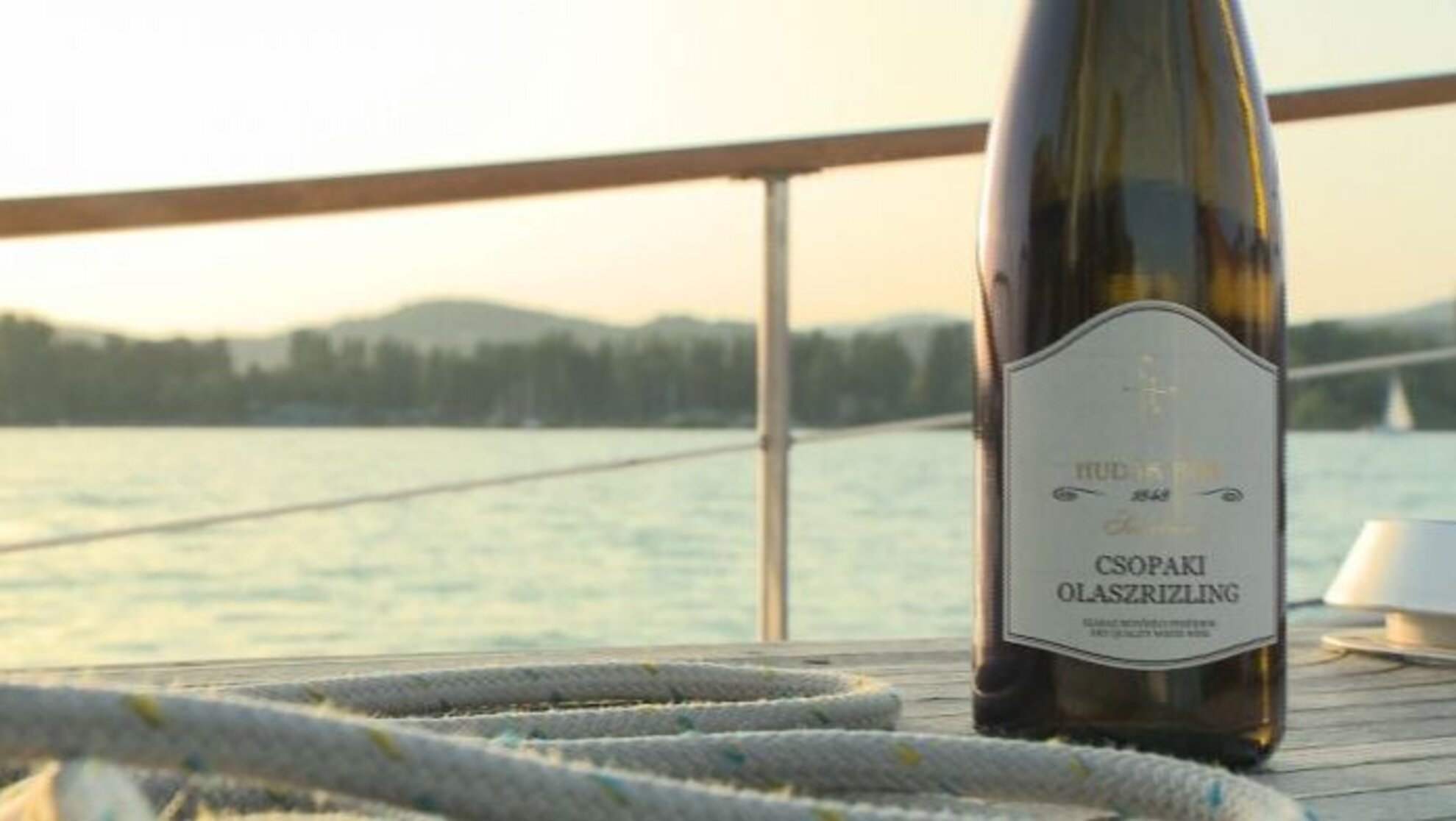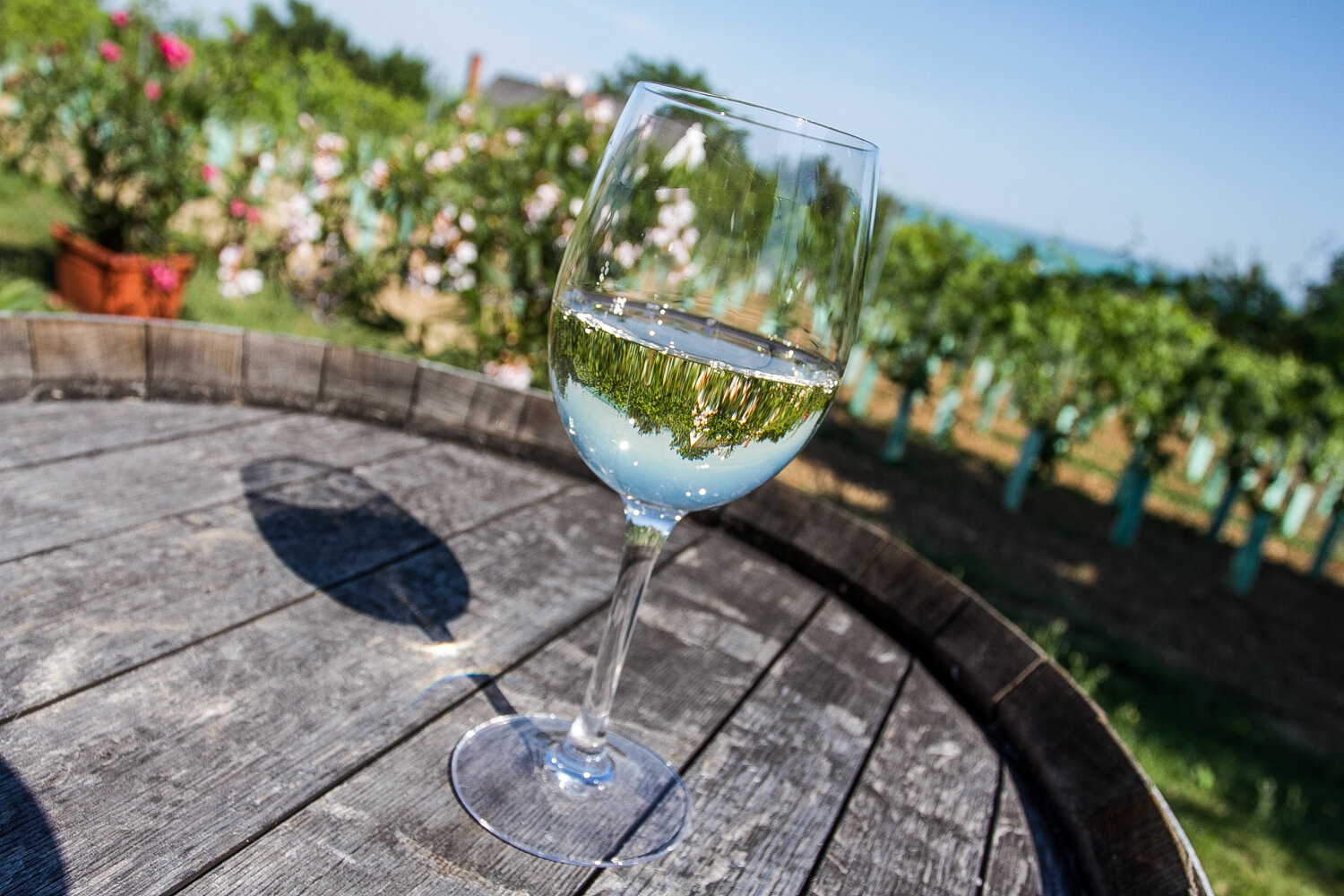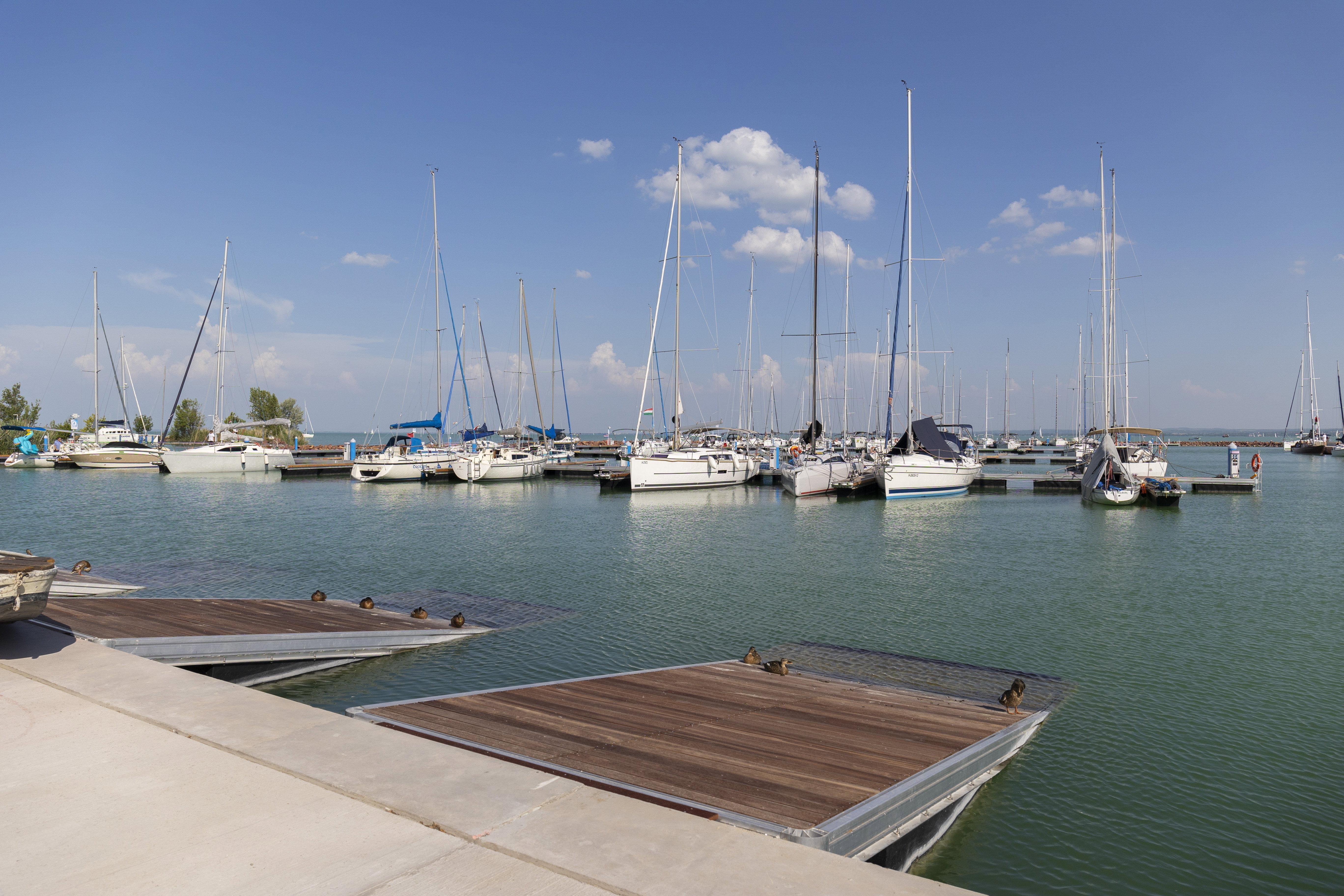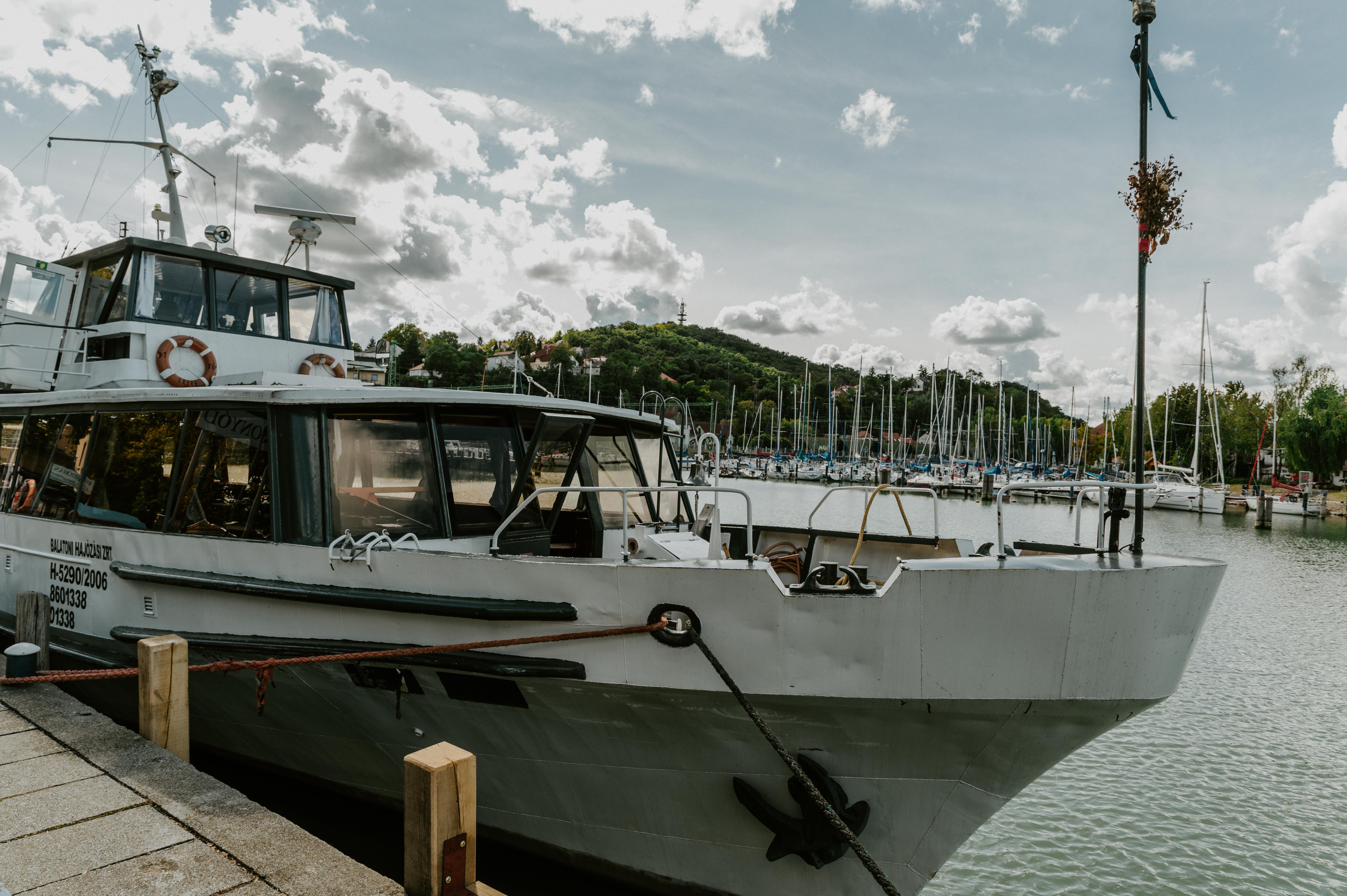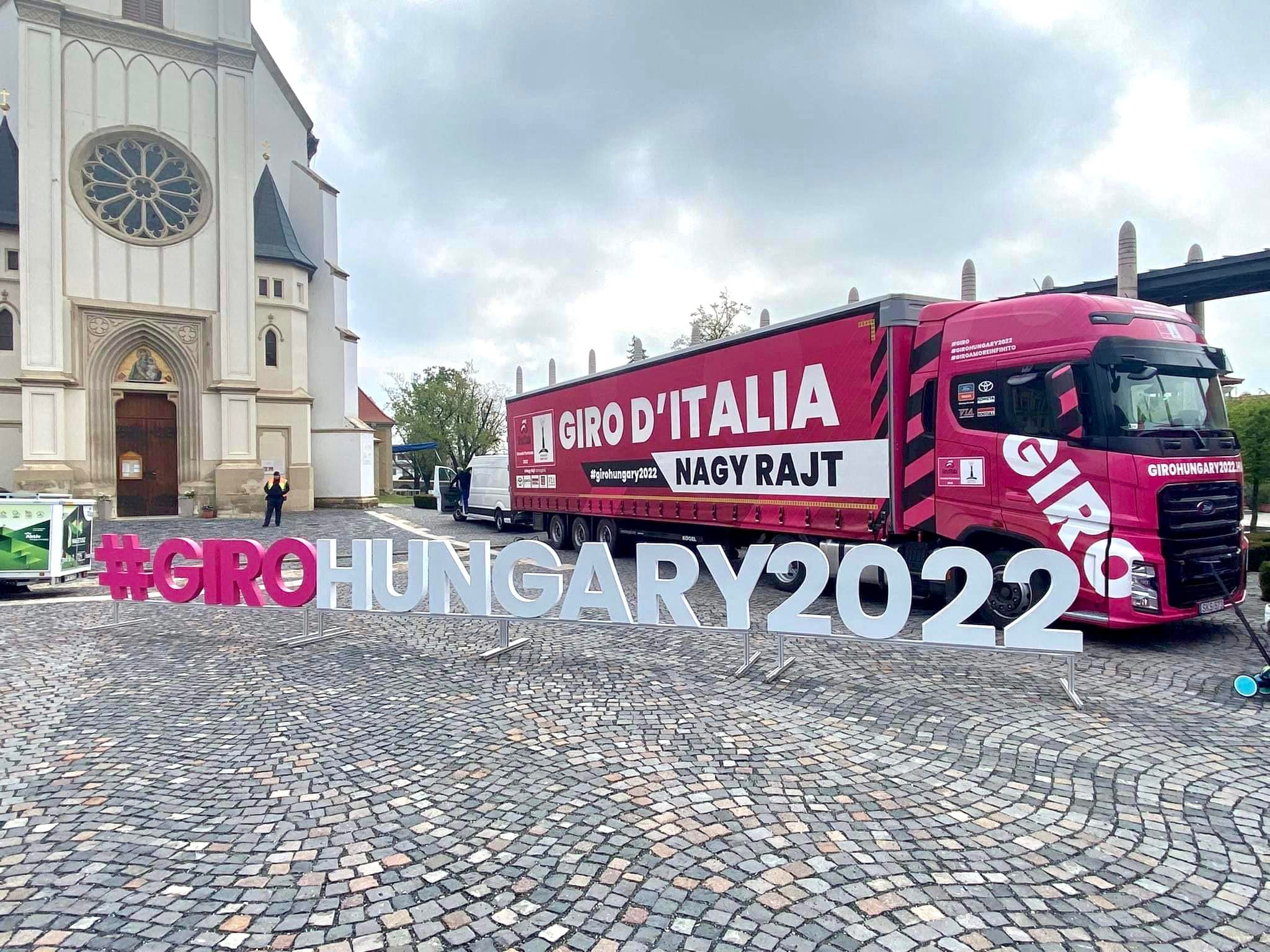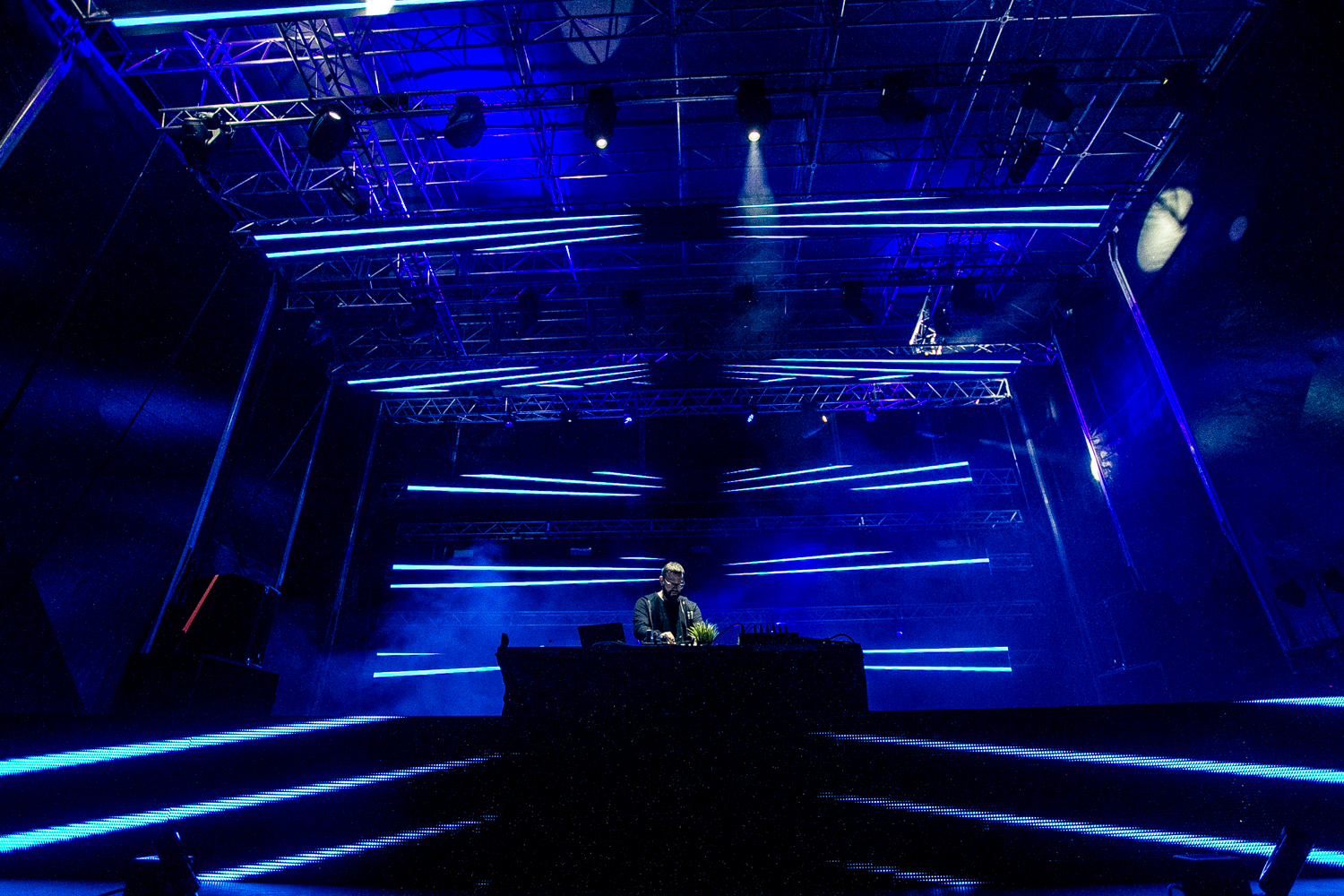An intriguing debate has emerged on the Balaton winemaking scene after the publication of an opinion piece by owner-winemaker of Szent Donát Winery Tamás Kovács. With advocacy group Balatoni Kör and the Csopak Codex backing him up, he has called for a unified quality assurance system, the merging of all wine regions around Lake Balaton, and a new name for Welschriesling. Balatonfüred-based winemaker Mátyás Hudák has criticized the plans, and said leaving official winemaking organizations out of the discussion was a risky move. Here we present the positions of both sides.
The most harmful spirit around Balaton
In an article published on the winemaking portal Vinoport, Tamás Kovács, the owner of Csopak’s Szent Donát Winery and co-owner of Márga Bistro, gave a detailed analysis of the current state of affairs at Balaton: “Balaton today is trying to build something on the ruins of the past 50 years. The biggest obstacle to reform is not financial or physical; it’s to do with attitude.” He thinks Balaton is bound by the spirits of the season, property, and speculators. Out of all three, the season is the main catalyst and the most harmful spirit.
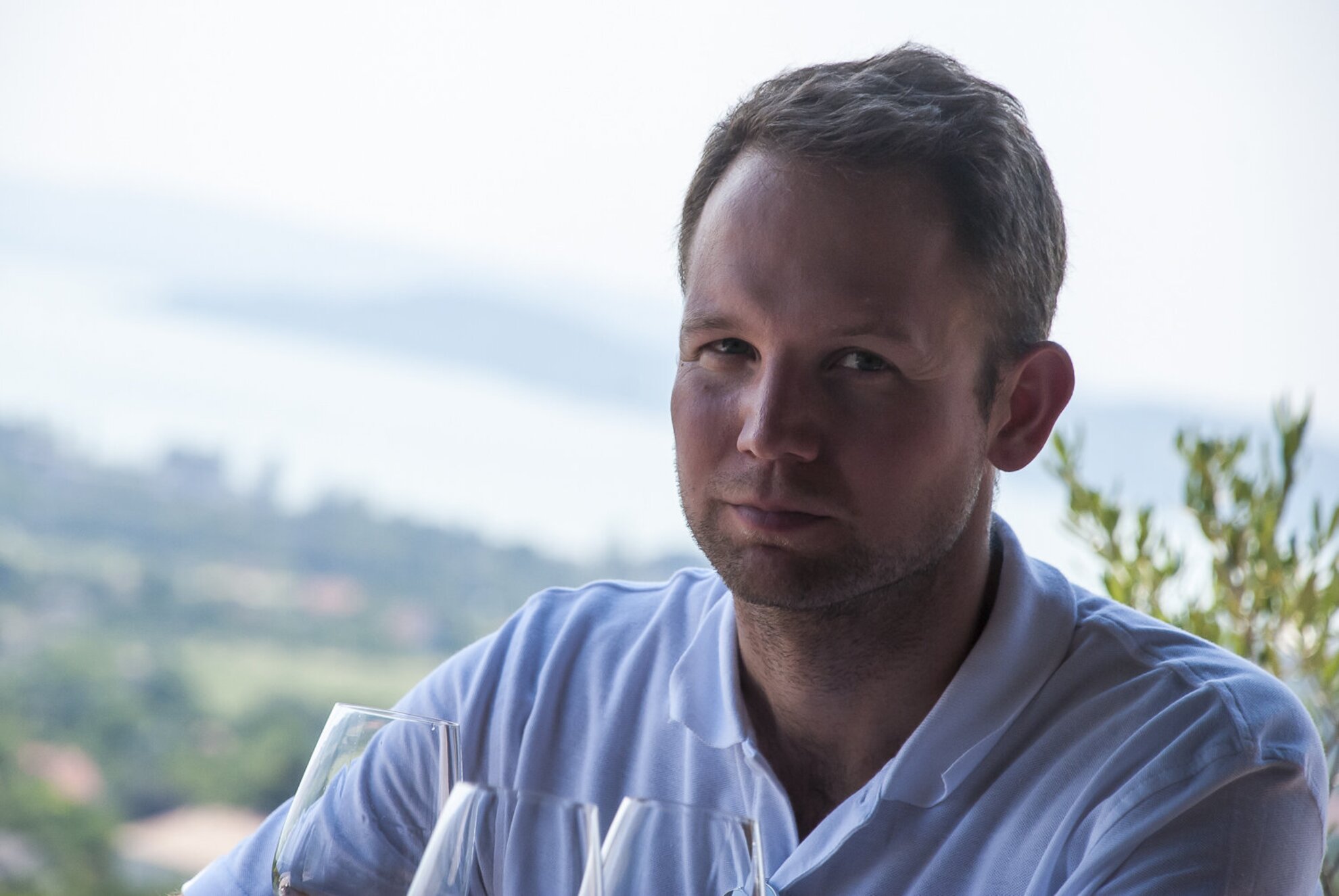
Talking about the spirit of property, Kovács says “parts of important growing areas were eradicated to build faux Mediterranean villas with big swimming pools”, and the destructive practices of speculators continue to this day. Winemakers say grapes and wines “have been part of the Balaton success story for millennia”, and if “swimming pools replace vineyards in the region, the spirit of the season will only grow stronger, and local farmers – especially young people – will be pushed out gradually.”
Wine as the foundation
The fetish of the season should be done away with because locals have a hard time making a living from tourism restricted to the summer period (accommodation, catering, festivals). Addressing the players on the supply side, the winemaker of Szent Donát believes people at Balaton should return to winemaking and viticulture, which could provide a long-term solution. Just like it did back in the day.
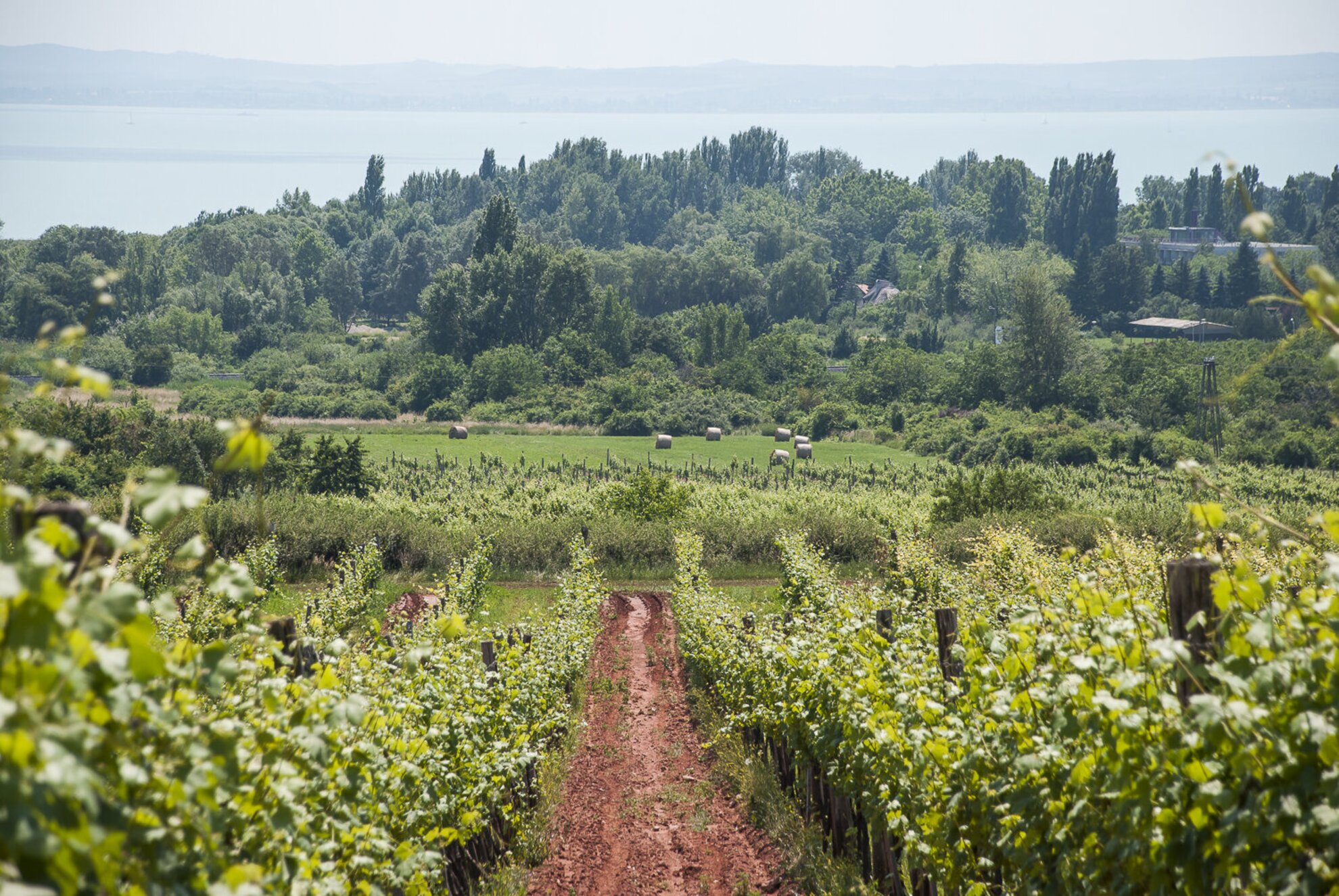
The debate is not about plating more grapevines, as all parties agree producing more wine would be a good thing. What they can’t seem to get on the same page about are the brand and categorization of the vintages.
Vinea Balaton
The brand is important because it gives the consumer an idea of what’s inside the bottle – even before they make the purchase. Thanks to a four-tier regulation system applying to wines produced in the Rhône wine region, for example, costumers “know what kind of style to expect in general” just by looking at the label on the bottle, says Zoltán Sánta, Dip WSET, in an article posted on the website Mandiner in reaction to Kovács's piece. Just like in the Rhône region, the process of creating wines worthy of the brand here at Lake Balaton can only begin with putting the necessary quality and origin assurance systems in place.
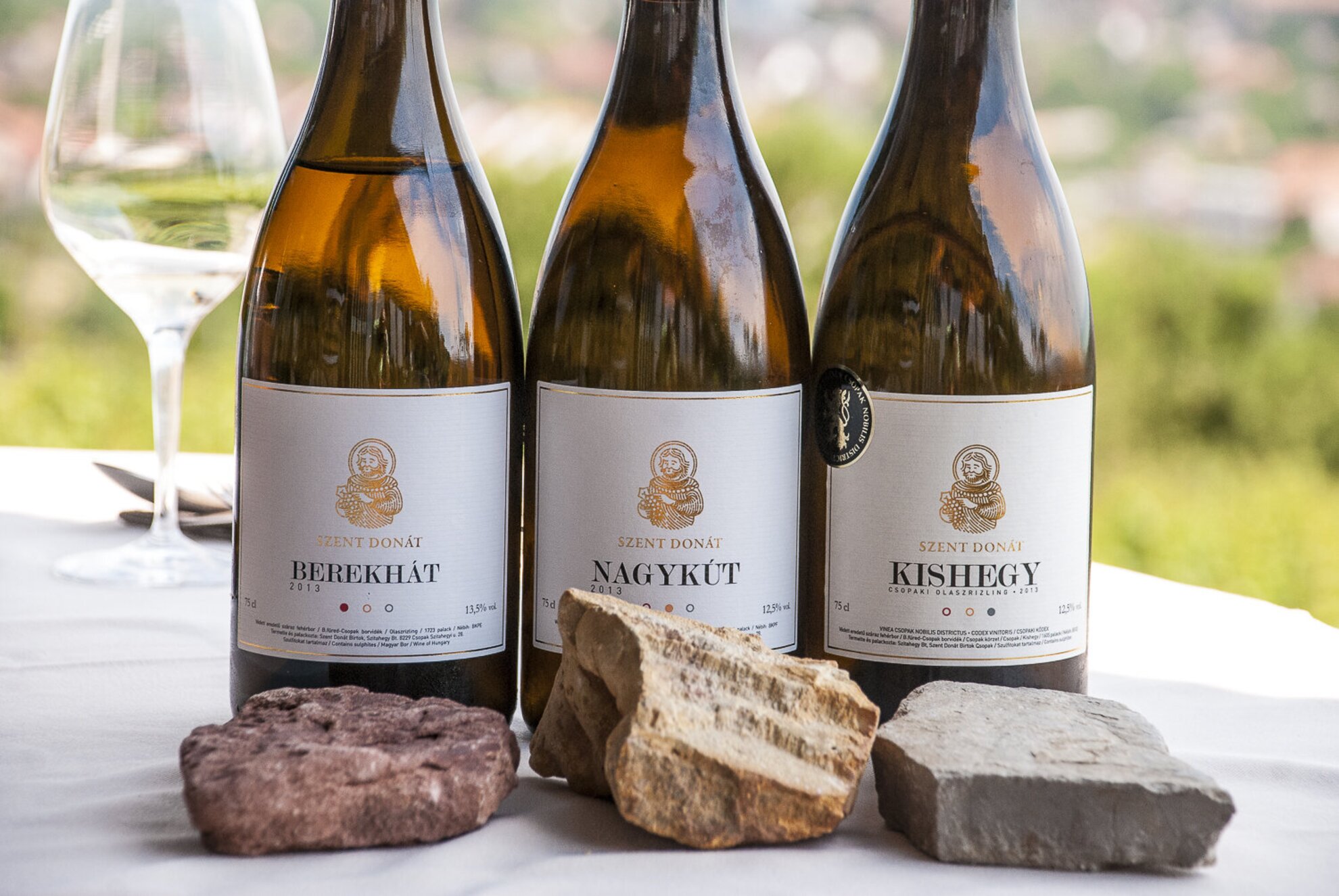
Members of Balatoni Kör, the Csopak Codex, and Riesling Generation think that the current six growing areas of Balaton should be treated as a single region, and that a three-tier regulatory system – similar to the one used for wines from the Wachau region – should be devised under the Vinea Balaton name. The aim would be to provide consumers with comprehensive information, and bring together likeminded local winemakers who are in favor the regulations. As Kovács notes, an association like this could provide farmers with a long-term solution in terms of livelihood, as it would encouraged locals to invest in viticulture instead of seasonal tourism.
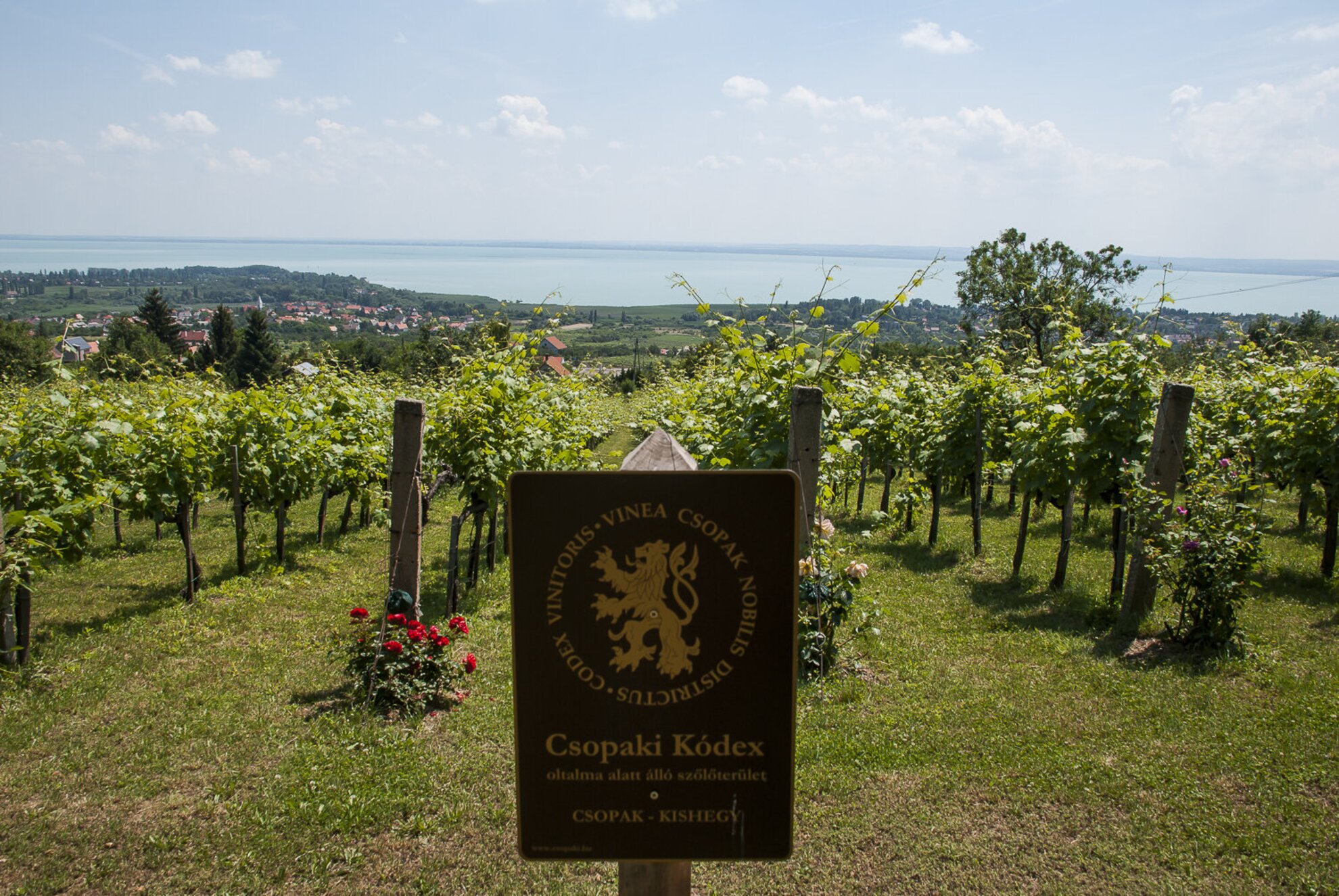
The idea
After reading the article of Tamás Kovács, we were still not quite clear on the details, so we asked him to explain to us what the new system would look like. The three distinctly marked tiers would represent three different categories and levels of quality.
- The first tier (BalatonBor) would comprise lighter, simpler (in the absolute best sense), fruity wines (with a Welschriesling base) for everyday consumption. Winemakers would use the same label to mark their wines, which would all be very similar in character.
- The next tier (HegyBor) would features wines marketed with the wineries’ own labels. Each bottle would bear a logo identifying it as part of this second category.
- Wines at the highest tier (DűlősBor) would have to comply with the strictest rules: winemakers would be required to create wines from the grapes of specific vineyards.
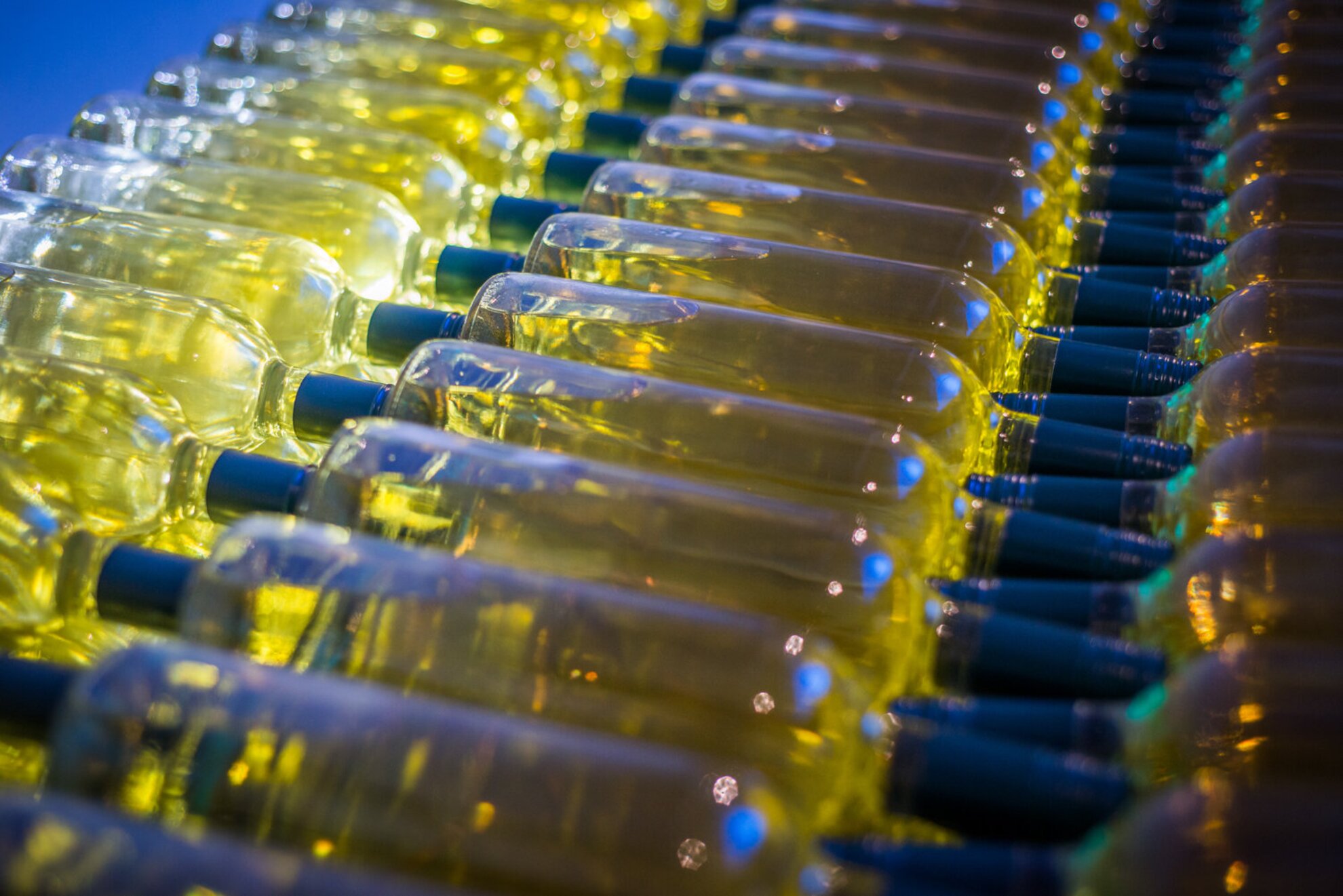
Becoming an approved member of the Vinea Balaton system won’t be easy: a jury of internationally trained experts from outside the region would take part in blind tastings to pick the items to be included in the quality assurance scheme. The candidates of the BalatonBor and HegyBor categories will be selected at the end of March – Kovács and his fellow wine aficionados expect applications from about 30 winemakers. The jury will decide which items to include in the DűlősBor category in the fall.
The new Welschriesling
According to a statement by Balatoni Kör, the attendees of the trade dinner at the 7th Olaszrizling Szerintünk tasting event revisited the question of eliminating the contradictions inherent in the Welschriesling name (Olaszrizling in Hungarian, literally meaning Italian Riesling). That is why the three winemaking organizations (Balatoni Kör, Csopak Codex, Riesling Generation) have decided to organize a competition, asking applicants to submit ideas for an expression synonymous with the traditional name denoting the variety and the wine made from it.
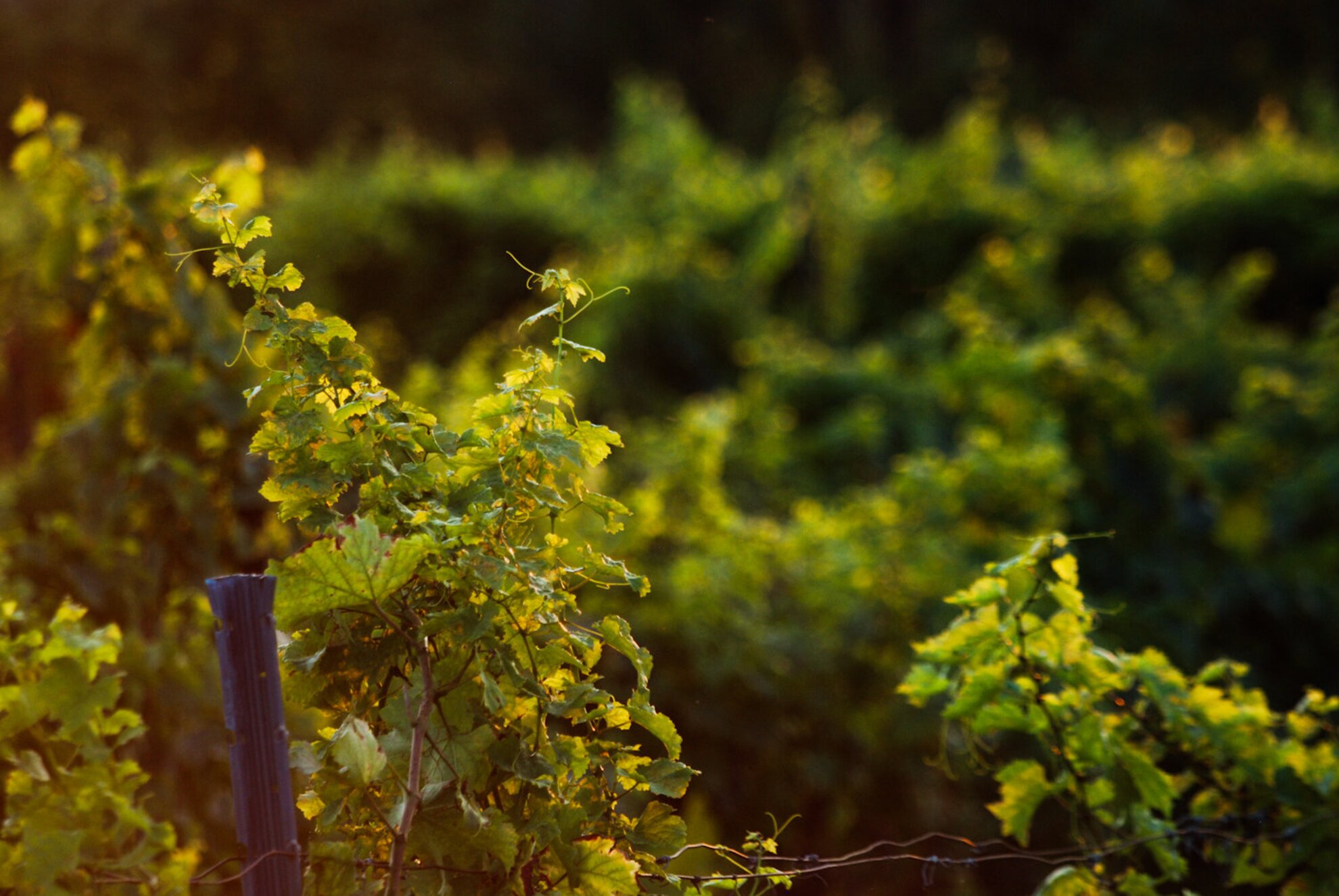
The proposed name can’t refer in any way to the grape’s connection to Italy or the Riesling variety, and it can’t be identical to the names currently used for the variety in other regions of the world: Ryzlink vlašský, Grasevina, Welschriesling, Riesling Italico.
The new name must be easy to pronounce and remember. Any resemblance to the sound of the “Olaszrizling” name is a bonus.
How dare you?
Mátyás Hudák, the owner of Hudák Vineyard and Winery is not a member of Balatoni Kör, the Csopak Codex, or Riesling Generation. He’s commented on Kovács’s proposal on Mandiner, saying that he doesn’t agree with either the three-tier quality assurance system or the new name for Welschriesling. He was appalled to hear that Tamás Kovács had failed to consult professional organizations, such as universities and research institutes.
